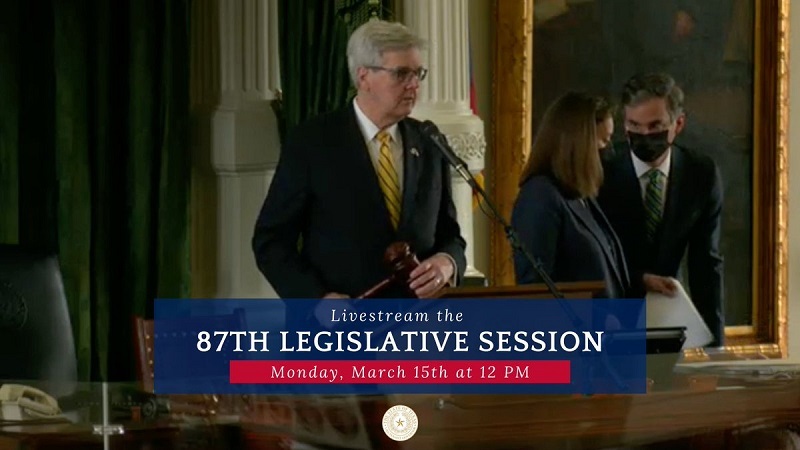State power generators continue to find themselves stuck between angry customers and Texas lawmakers as Gov. Greg Abbot and much of the state Legislature seek to avoid blame by pushing for reversal of almost $16 billion in huge electric bills.
Abbott asked the state House and Senate to consider emergency legislation to turn back large power bills many Texans are getting following last month's winter weather crisis that left millions without power and running water, the Wall Street Journal reported last week.
The Texas Senate, in an unscheduled floor action Monday, approved Senate Bill 2142, which directs the Public Utility Commission (PUC) to order the state electric grid and market operator "to correct billions in erroneous electric charges during the February winter storm," the Senate said in a news release issued the same day.
"If this is not fixed, the customers, the rate payers, the people of Texas, they'll be bearing this," bill sponsor Sen. Bryan Hughes (R-Mineola) said in the news release.
In testimony before the Senate Jurisprudence Committee prior to the vote, Arthur D'Andrea, the PUC's forced-to-resign chairman, tried to tell Senators that the Legislature - not the PUC - is empowered to turn back the large billing charges, according to the news release.
D'Andrea was appointed PUC chair following the resignation of his predecessor, DeAnn Walker. Abbott then announced yesterday that D'Andrea had stepped down.
The legislation passed notwithstanding. Lt. Gov. Dan Patrick said from the Senate rostrum afterward that it's up to the House to quickly pass the bill. As with many other statements from lawmakers since last month's weather catastrophe, the Electric Reliability Council of Texas (ERCOT), the PUC and power generators are catching almost all of the blame.
"The Senate has acted," Patrick said in the news release. "We are asking the governor to join us, I think if he will say he will sign this bill, it may help us get this bill through the House."
The political rhetoric has all but drowned out assertions that power generators that make up the Texas grid find themselves in a dilemma. Shortly after February's weather crisis began to lift, Reuters reported that Texas legislators must choose between litigation from power companies and traders over rollbacks of electricity prices or cascading bankruptcies if they don't.
A Texas Panhandle wind farm has already filed a lawsuit, arguing it shouldn't have to pay $71 million to its bank following the February storms. ERCOT also reached out to Goldman Sachs and other finance companies to head off a payment shortfall, the Wall Street Journal reported March 12.
ERCOT discussed financing options with Goldman and others, while San Antonio’s public utility sued to avoid liability for a growing market shortfall.
Last month's winter freeze drove up the price of electricity in the largely unregulated Texas power grid to about $9,000/MWh. With the grid teetering toward complete failure, power generators had to purchase high-priced power from elsewhere and found themselves in conflict with state officials and the financial world.
"You don't know who you’re hurting," D'Andrea said during a PUC meeting earlier this month, according to statements reported by CW39 Houston. “You think you're protecting the consumer, and it turns out you're bankrupting a co-op or a city. And so it's dangerous to do so, after something is run to go around and redo it."
Abbot's call for D'Andrea's resignation appears to have been over the former PUC chair's comments during that meeting.
Blaming power operators began even while the storms were still going on. State Rep. Tony Tinderholt (R-Arlington), who sheltered in a hotel with his wife and two children after their Arlington home lost power, blamed the Texas Legislature and ERCOT for Texans' suffering.
"People are suffering right now because we have failed," Tinderholt said in a Feb. 17 New York Times story. "And when I say 'we,' I'm talking about the Legislature, ERCOT and the power companies."
For years, Tinderholt and state Sen. Bob Hall (R-Edgewood) have introduced and reintroduced "resilient communities" legislation that, among other things, would have strengthened the state's power grid. Last month's deadly weather encouraged Tinderholt and Hall to redouble their efforts to get the legislation, Senate Bill 76 and House Bill 400, pushed through this session.
Neither bill has gained much traction. SB 76 is still in the Senate Business and Commerce Committee. HB 400 also is pending in committee, as it has been since 2019.

